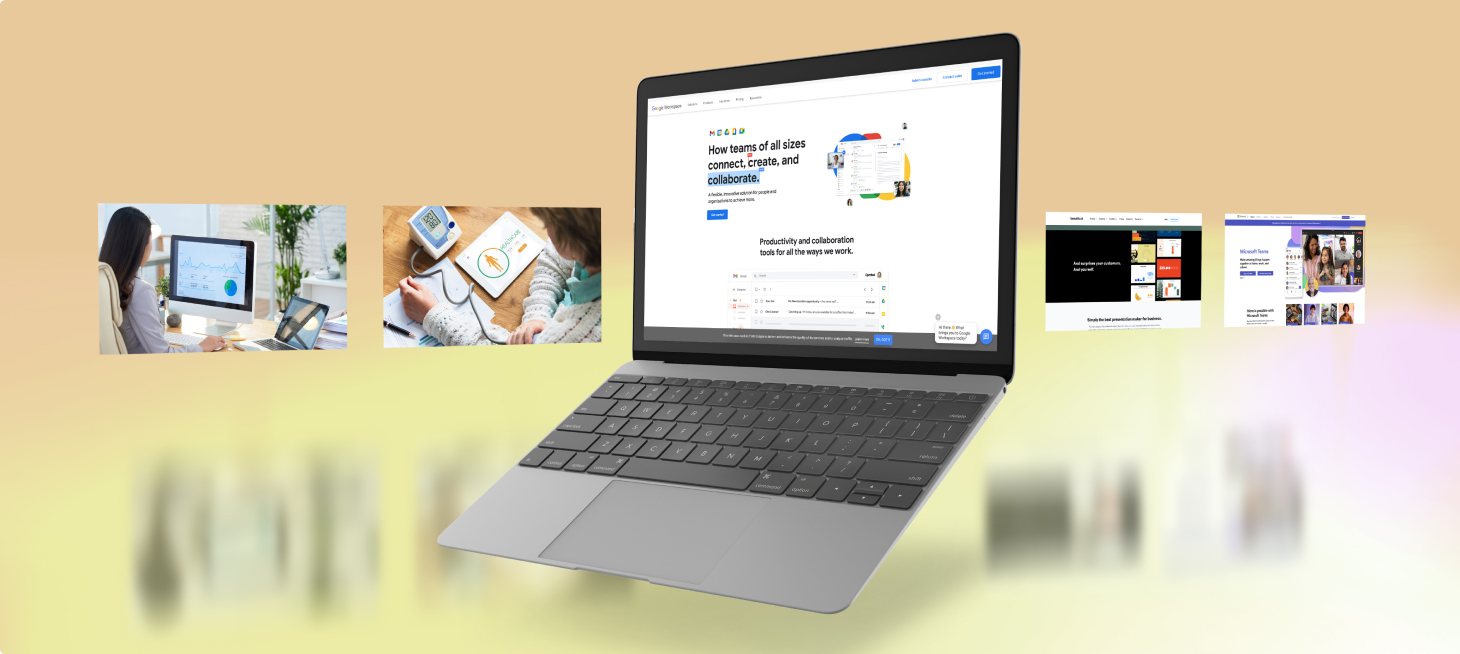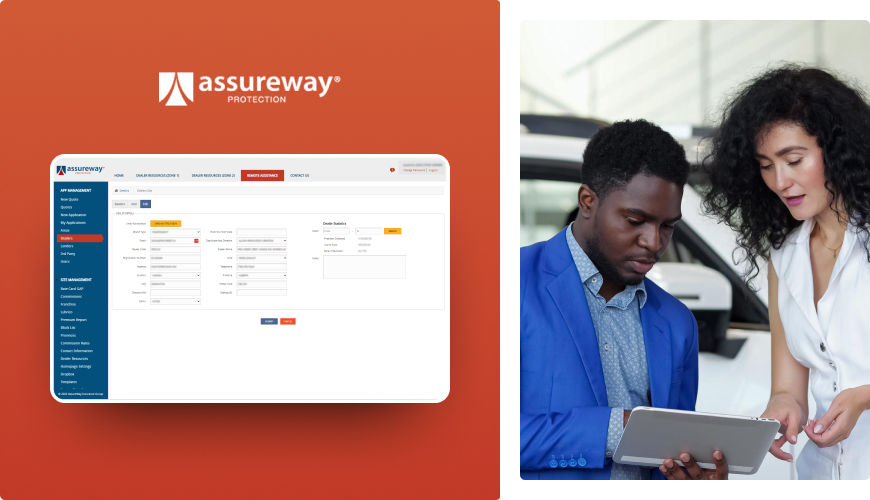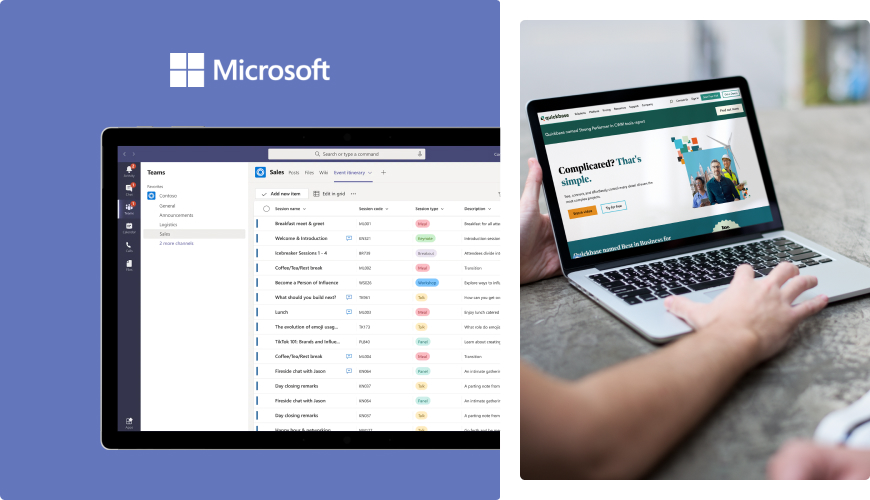Here are nine business software solutions that will continue to disrupt industries in 2023 —and some you may want to consider to grow your business.
1. Customer Relationship Management (CRM) Software
If you want your business to prosper, CRM software is a must-have tool. A CRM can benefit any business, but those with marketing or sales teams should especially consider it as it covers all customer touchpoints, from sales to marketing to service.
A CRM manages, tracks, and organizes customer interactions throughout the customer journey. You can collect customer data such as engagement, contact information, user behaviour, and purchases. With this data, you can identify your customers’ needs and preferences, increase sales and revenue, and provide better insights into the customer base.
The CRM software market is one of the fastest-growing industries, expected to reach $163.16 billion by 2030. What’s pushing this trend? The demand for better customer service, automated engagement, and more personalized customer experiences.
2. Enterprise Resource Planning (ERP) Software
With ERP software, you can manage your finances, inventory, human resources, customer relationships, supply chain management, and other business functions in a single system. This will save you time and money by removing the need for duplicate data entry and manual processes.
The ERP software market is estimated to hit sales of $95.13 billion by 2028. ERP software demand is rising as businesses strive to gain real-time insights into their operations, helping them allocate resources more efficiently. For instance, ERP software can give you a better handle on stock emergencies in real time. If your inventory levels are low, you can use an ERP system to reorder products from suppliers before you run out of stock to keep up with customer demand.
3. Healthcare Software
Healthcare software will continue transforming how healthcare is delivered and managed, enhancing the quality of care and patient outcomes.
Already, digital health technology has improved patient treatment, health records, medical billing and coding, patient scheduling, prescription management, and the ability to access care when we need it from healthcare providers. In light of the challenges facing health systems since the pandemic, it’s working to alleviate those strains and help the sector improve its processes.
Thanks to the ever-evolving software, doctors can focus on patient care instead of time-consuming administrative work. It also puts large amounts of data into physicians’ hands, which can help them better understand and manage patients’ health.
Digital solutions enable us to access and manage our health information more efficiently, empowering us to take a more active role in our care. Apps such as Fitbit and m-Health already support this shift to self-care.
4. Online Presentation Software
The presentation space has developed in the last several years with software like Canva, Pitch, Beautiful.ai, and Prezi. They’re giving basic presentation tools like Microsoft PowerPoint, Apple Keynote, and Google Slides a run for their money.
The new generation of online presentation tools goes well beyond traditional slideshows. With their enhanced features, you can engage your audience, streamline the creation process with AI, and create videos and interactive conversations from your slide decks.
You can also access and share your presentations from anywhere with an internet connection. This can be especially useful for teams that are distributed or work remotely, as it allows them to collaborate and work on presentations in real time.
5. Project Management (PMP) Software
You can revolutionize teamwork and workload management with the right PMP software. This is now more important with many people working remotely or shifting to a hybrid work set-up as they can no longer rely on in-person meetings to pass on information.
PMP software (like monday.com, Asana, Quickbase, and Microsoft Lists) benefits businesses by tracking the progress of projects, resources, allocations, deadlines and tasks within a company. With PMP software, project managers and team leads can do regular project “check-ins” to see how teams are faring and keep them on the same page. Doing this helps reduce the risk of project delays or failures and better align projects with strategic goals.
6. Business Communication Software
Investing in business communication tools has become a key priority for many businesses because they improve employee engagement, retention and motivation. According to the Workplace Research Foundation, if your employees are engaged and well-connected, they will be 38% more productive than those who aren’t.
With remote work becoming more mainstream, many businesses have relied on communication tools (like Microsoft Teams, Slack, Trello, Zendesk, and Google Workspace) to keep teams in touch. Software features such as messaging, video conferencing, file sharing, and project management help teams work faster and smarter. By doing so, businesses are more agile and responsive to changes in the market, giving them a competitive edge.
7. Automated Payroll System
Let’s face it: payroll is a tedious task. You have to add new employees to the system, collect and file paper forms, and remember to submit payroll or file tax documents.
No matter how big or small your business, automated payroll software (like Gusto or Collage) can manage and process your payroll much easier. You can save time and reduce mistakes by automating many payroll undertakings, such as tracking hours, calculating pay, withholding taxes, and generating paycheques. You can also comply with various regulations and ensure that your employees are paid accurately and on time.
8. Data Leakage Detection System
Data is one of the most valuable assets in the world. IBM’s recent Cost of a Data Breach report says that Canadian companies lose millions of dollars annually due to data breaches.
A data leakage detection system can help your business identify and stop unauthorized access to or sharing of sensitive data. The system can help protect your customer’s personal information and avoid potential security violations by providing real-time monitoring and alerts, saving your business time, money, and reputation damage.
9. AI-based shopping systems
AI shopping systems are becoming increasingly popular because they can provide customers with a more personalized and convenient shopping experience. It also lets businesses improve their sales and marketing efforts by looking at customer behaviour and purchasing habits.
Take Amazon’s Alexa Voice Shopping, for example. The service lets you make purchases or hear the best deals of the day using your voice. Say you need some groceries. Alexa will take your request, and groceries will arrive to you within days. With unique features like voice authentication and 1-Click ordering, customers can make purchases quickly and easily, reducing the risk of fraud or unauthorized transactions.
The Bottom Line
The software industry is undoubtedly booming and will continue to undergo significant change. As we use the latest tools, technologies, and software, we can expect the business landscape to become even more competitive. In a world where companies can be more practical, efficient, and connected to their audience than ever before, the future of software development looks bright.
Several factors must be considered to ensure that your business succeeds, and software is one of them. Make it a lot easier by partnering with someone with experience. Whether you want to leverage an existing concept or build something entirely from scratch, Convergine can craft custom software tailored specifically for your business needs.






